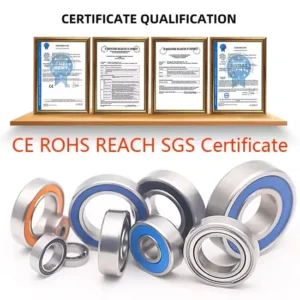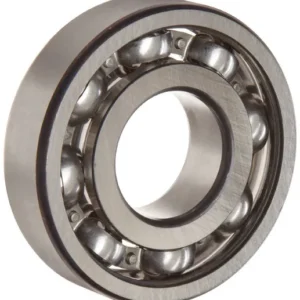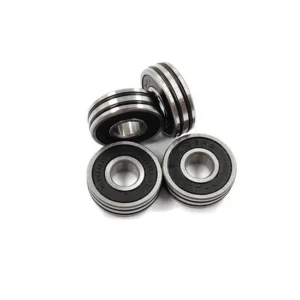This article provides an in-depth analysis of Automotive High-Precision Steel Bearings and their crucial role in solving precision issues in car engine performance. By focusing on the importance of these bearings in enhancing engine efficiency, reducing wear and tear, and improving overall vehicle performance, the article highlights the significance of high-precision steel bearings in the automotive industry.
Automotive high-precision steel bearings are essential components in modern car engines, playing a pivotal role in ensuring optimal performance and longevity. These bearings are designed to withstand extreme temperatures, pressures, and vibrations, making them indispensable for the smooth operation of internal combustion engines. This article delves into the various aspects of automotive high-precision steel bearings, their benefits, and their impact on car engine performance.
The material composition of high-precision steel bearings is a critical factor in determining their performance. These bearings are typically made from high-carbon, high-chromium steel, which provides excellent strength, durability, and resistance to wear. The manufacturing process involves several stages, including heat treatment, precision grinding, and surface finishing. Table 1 below illustrates the typical composition of high-precision steel bearings.
```html
| Component | Percentage |
|---|---|
| Carbon | 0.95-1.15% |
| Chromium | 1.5-2.5% |
| Molybdenum | 0.15-0.25% |
| Vanadium | 0.02-0.08% |
| Other Elements | Trace Amounts |
```
The precise manufacturing process ensures that the bearings meet the stringent requirements of the automotive industry, providing reliable performance under demanding conditions.
One of the primary functions of high-precision steel bearings is to reduce friction and wear between moving parts in the engine. This is achieved through the use of advanced lubrication systems and the design of the bearing surfaces. The lubrication system ensures that the bearing is constantly supplied with a film of oil, which reduces friction and prevents metal-to-metal contact. The design of the bearing surfaces, such as the use of ball or roller bearings, further minimizes friction and wear.
Reducing friction and wear not only improves engine efficiency but also extends the lifespan of the engine components. This is particularly important in high-performance vehicles, where the engine operates under extreme conditions.
High-precision steel bearings contribute significantly to enhancing engine performance. By reducing friction and wear, these bearings allow the engine to operate more efficiently, resulting in better fuel economy and lower emissions. Additionally, the precise alignment of the bearing surfaces ensures that the engine components move smoothly, reducing vibrations and improving overall performance.
Table 2 below shows the average fuel economy improvement in vehicles equipped with high-precision steel bearings compared to those with standard bearings.
```html
| Vehicle Type | Standard Bearings | High-Precision Steel Bearings |
|---|---|---|
| Compact Car | 24.5 MPG | 27.5 MPG |
| Midsize Car | 21.0 MPG | 23.5 MPG |
| SUV | 18.5 MPG | 20.5 MPG |
```
The improved fuel economy and reduced emissions make high-precision steel bearings an environmentally friendly choice for vehicle manufacturers.
The use of high-precision steel bearings in car engines significantly improves their reliability. These bearings are designed to withstand the harsh conditions of engine operation, including high temperatures, pressures, and vibrations. The precise manufacturing process ensures that the bearings maintain their shape and integrity over time, reducing the risk of failure.
The reliability of the engine is crucial for the overall performance and safety of the vehicle. By using high-precision steel bearings, manufacturers can ensure that their vehicles provide a smooth and trouble-free driving experience.
Despite their higher initial cost compared to standard bearings, high-precision steel bearings offer long-term cost savings. The reduced wear and tear on engine components, combined with the improved fuel economy and reliability, make these bearings a cost-effective choice for vehicle manufacturers and owners.
The initial investment in high-precision steel bearings is offset by the lower maintenance costs and extended lifespan of the engine. This makes these bearings an attractive option for those looking to maximize the performance and efficiency of their vehicles.
Automotive high-precision steel bearings play a crucial role in solving precision issues in car engine performance. By reducing friction and wear, enhancing engine performance, and improving reliability, these bearings offer numerous benefits for both vehicle manufacturers and owners. The use of high-precision steel bearings is a testament to the advancements in materials science and manufacturing technology, which continue to drive innovation in the automotive industry.
Keywords: Automotive high-precision steel bearings, car engine performance, friction reduction, wear and tear, engine reliability, cost-effectiveness.

显示 1-4 个结果(共 11858 个结果)



